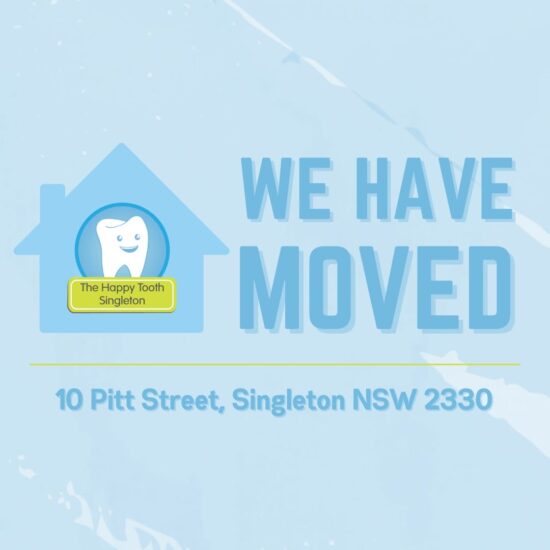The inside of your tooth, known as ‘pulp’ , consists of nerves, soft tissues and blood vessels. Should your tooth’s nerve become infected as a result of decay or other damage, it can lead to pain and swelling. Ignoring a tooth with an infected nerve can result in the infection spreading to your gums and jaw. This has a negative impact on your oral health as well as your general well-being.
In the past, teeth with infected or damaged pulps got removed. Thanks to modern dentistry, root canal treatment now exists as a solution for saving teeth and maintaining natural smiles.
At The Happy Tooth, we understand that root canal therapy may be daunting for some patients. Our dentists are gentle and compassionate, so having root canal therapy at The Happy Tooth is nothing to stress about.
Causes of Root Canal Infection
There are several reasons why a root canal may become infected. However, it generally comes down to bacteria entering your tooth’s pulp chamber. Below are some of the common causes of pulp infection:
- Severe and untreated tooth decay
- A chipped, cracked or damaged tooth that creates an entry point for bacteria to your root canal
- Various tooth displacements
- Repeated dental treatments on a single tooth over time
Tooth decay remains the most common cause of tooth canal infection that we see. This is why it’s essential to diagnose and treat oral health issues before extensive damage is done. Maintaining regular dental check-ups can help you prevent tooth decay and also diagnose and treat it before it leads to you needing more major treatment, like root canal therapy.
Do I Need Root Canal Therapy?
Our dentists recommend patients avoid the self-diagnosing strategy. It can lead to too much time lost before a professional diagnosis. It’s essential that oral health conditions like a root canal infection get treated as early as possible. This avoids major damage and ultimately, tooth loss.
An appointment with one of our dentists will determine your need for root canal therapy. However, below are some of the main symptoms that may indicate that you need this treatment.
- Pain
- Swelling
- Gum, jaw and facial tenderness
- A general feeling of being unwell
- Tooth discolouration
If you experience one or more of the above-mentioned symptoms, it’s likely there is an issue. Each symptom will need further analysis by your dentist to determine whether root canal therapy is the treatment you need.
The Process For Root Canal Therapy
Root canal therapy usually takes place over one to three appointments. The success of root canal therapy does not depend on the number of visits it takes to complete. Each case is unique. So, the number of appointments you will need to have your root canal therapy will be determined after your initial assessment.
X-Rays
X-rays allow your dentist to clearly see the damage and determine the shape of your root canal. It also gives them an opportunity to assess any damage to your surrounding bone.
Numbing
Before your dentist commences working on your tooth, the area will be numbed. Modern-day anaesthesia and the way we administer it mean you’ll hardly feel a thing.
Placing The Dental Dam
A dental dam is a rubber sheet our dentists use to ensure the area around the tooth being treated remains clean and dry.
Removing the Infection
The next step is removing the infection from your tooth. Your dentist will remove all bits of decayed or damaged pulp and give your tooth’s pulp chamber a good clean.
Medicating
Your tooth’s chamber will be medicated to kill any remaining bacteria and prevent further damage.
Sealing Your Tooth
Your dentist will then fill your tooth with a temporary filling until your next appointment when your permanent filling will be applied.
Restoring Your Tooth
The final step involves the final restorations to your tooth. In most cases, this may include the placing of a dental crown leaving your tooth with a fully functioning and natural-looking finish.
Aftercare
Root canal therapy aftercare does not need any special measures from you. All you need to do is monitor your sensitivity in the initial days post-treatment and ensure you maintain good oral hygiene.
Root Canal Therapy FAQs
Our friendly front desk team is more than happy to answer any questions you may have. For quick reference, here are the answers to some questions about root canal therapy that we get asked often:
What is the difference between root canal therapy and root canal treatment?
They are the same thing. Some dentists refer to it as therapy and others as treatment, but the process is the same for both.
How painful is root canal treatment?
Since the area is numbed before treatment, you will experience no pain during your root canal treatment. Some patients may experience sensitivity around the area for a few days post-treatment. You can reduce this sensitivity with pain relief medication. If you experience persistent pain after having root canal treatment you should notify your dentist.
Is root canal treatment covered by my private health insurance?
Root canal therapy falls under ‘major dental’, which may be a feature of your private health insurance policy. Any applicable limits or waiting periods will be specific to your provider and level of cover. We can provide you with the treatment codes to check with your insurer whether you’re covered and up to what amount.
Is there an alternative to root canal therapy?
The alternative to preventing further damage from an infected tooth is to remove it. At The Happy Tooth, our aim is to preserve your natural teeth. We only extract teeth when there is no other option. Root canal treatment is a routine procedure with a very high success rate and should be considered before tooth extraction.
How can I prevent needing root canal therapy?
The best way to prevent the need for tooth canal therapy is to maintain good oral hygiene and keep up with regular dental check-ups. Good dental hygiene should involve twice-daily brushing and daily flossing. Consume a healthy and balanced diet with plenty of water. It also pays to protect your teeth from damage if you play contact sports. You can do this effectively with the use of a custom mouthguard.


